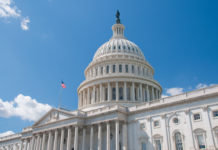Under the debt ceiling deal, fiscal year 2024 federal nondefense discretionary spending will be “relatively flat with fiscal year 2023 spending,” according to White House officials on a May 30th call LeadingAge attended. This “level funding” counts reappropriating unspent COVID relief funds, another part of the debt deal. The deal would then restrict fiscal year 2025 spending to 1% above FY24, an amount sure to be insufficient for programs that rise at least at the rate of inflation, if not faster, like housing assistance programs. White House officials repeatedly compared the debt deal to the House-passed debt ceiling bill, which would have required FY24 funding at FY22 levels and put 10 years of spending caps in place. The bill also incentivizes Congress to pass appropriations bills in a timely manner: if all 12 appropriations bills are not enacted by January 1, 2024, discretionary spending will temporarily operate at a maximum of 99% of FY23 levels. Of the COVID funding rescissions agreed to in the debt deal, HUD multifamily programs will see any unallocated Coronavirus Supplemental Payment (CSP) funding rescinded; it is unclear how much money this is. HUD recently completed its fifth and final round of CSP awards, which made available $139 million for project-based rental assistance, $1.9 million for 202/PRACs, and $8.1 million for 811/PRACs. The deal would require more people to work to receive food stamps, raising the age limit of 49 to 54 for those who don’t have dependents. The bill also includes new exemptions from SNAP work requirements, including for veterans and people experiencing homelessness. The debt deal also retains $5 billion in funding for the development of new COVID vaccines and treatments and it would continue funding for COVID vaccines and treatments for the uninsured. The House is expected to vote on the bill today, May 31st.




